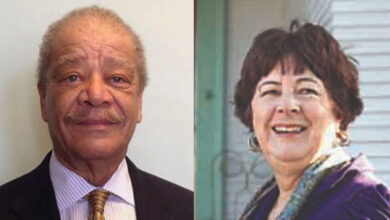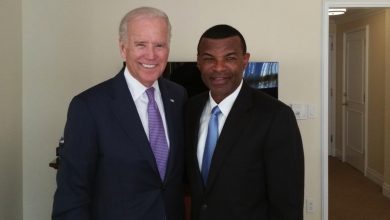Oakland at Its Best… A Glimpse: Uniting the Community and Supporting Future Generations

Ex-Mayor, Metropolitan Chamber of Commerce Are Not Disputing Findings of Violations
By Ken Epstein
Former Oakland Mayor Libby Schaaf, currently a candidate for state treasurer, faces thousands of dollars in penalties from the City of Oakland Public Ethics Commission for a “pattern” of serious campaign violations in 2018 and 2020 city elections.
According to the proposed settlement agreements, which are on the agenda for the Monday, Sept. 16 Public Ethics Commission (PEC), Schaaf and many of those with whom she was working, have cooperated with the investigation, and have accepted the commission’s findings and penalties.
“Respondents knowingly and voluntarily waive all procedural rights under the Oakland City Charter, Oakland Municipal Code, the Public Ethics Commission Complaint Procedures, and all other sources of (applicable) procedural rights,” the settlement agreement said.
“If respondents fail to comply with the terms of this stipulation, then the commission may reopen this matter and prosecute respondents to the full extent permitted by law,” according to the agreement.
Schaff and co-respondents were involved in three related cases investigated by the PEC:
In the first case, Schaaf in 2018, without publicly revealing her involvement as required by law, working with the Oakland Metropolitan Chamber of Commerce and others, created, lead, and raised funds for a campaign committee called “Oaklanders for Responsible Leadership, Opposing Desley Brooks for Oakland City Council.”
The “respondents,” who were responsible for the violations in this case were: the campaign committee called Oaklanders for Responsible Leadership; Mayor Schaaf; the Oakland Metropolitan Chamber of Commerce; OAKPAC; which is the chamber’s political action committee; Barbara Leslie and Robert Zachary Wasserman, both leaders of the Oakland chamber; and Doug Linney, a campaign consultant who was brought on by Schaaf to organize and lead the campaign to defeat Desley Brooks in her 2018 campaign for reelection.
Linney reported in his interview with the PEC that Schaaf had approached him and said, “Let’s do an Independent Expenditure (IE) campaign against Desley and let me see if I can get some other folks involved to make it happen.”
Linney developed a plan, which hired staff to organize field canvassing and phone banking. He said Schaaf told him the budget should be more than $200,000 because “I think raising $200K shouldn’t be hard and could shoot for more.”
None of the original group, which met weekly, included anyone who lived in District 6, the section of the city that Brooks represented. They waited to start the committee until they could find a District 6 resident willing to be the face of their campaign.
During her tenure, Brooks was instrumental in establishing the city’s Department of Race and Equity.
Among the violations reported by the PEC:
- Respondents reported contributions as being received from the chamber’s political action committee, OAKPAC, “rather than the true source of the contributions,” in order to hide the identities of contributors.
- Failure to disclose “controlling candidate,” Libby Schaaf, on a mass mailer.
- Failing to disclose the controlling candidate, Libby Schaaf, on official campaign filings.
- Receiving contributions in amounts over the legal limit. For example, the State Building and Construction Trade Council of California PAC donated $10,000, which is $8,400 over the limit; and Libby Schaaf donated $999, which is $199 over the limit.
Total contributions were $108,435, of which $82,035 was over the limit.
“In this case, Mayor Schaaf and her associates’ action were negligent. All of them were fully aware that Mayor Schaaf and significant participation in the IE campaign against Brooks, including its creation, strategy, and budgeting decisions, and selection of personnel.”
Further, the PEC said, “The respondents’ violations in this case are serious. The strict rules applying to candidate-controlled committees go directly to the very purpose of campaign finance law.”
In her interview with the PEC, Schaaf, who is an attorney, had received incorrect legal advice from Linney, her campaign consultant, that her activities were legally permissible, because she was not the “final decision-maker.”
Total recommended penalties for all those involved in this case were $148,523.
The PEC also found violations and is recommending penalties in two other cases.
The second case involves the Oakland Fund for Measure AA in 2018, which established a parcel tax to fund early childhood initiatives in Oakland. Looking into this case, PEC investigators found that Schaaf used her position as mayor to benefit the campaign, though without revealing her involvement.
A contractor who made a large contribution was Julian Orton of Orton Development, which was in negotiations with the city to redevelop the Henry J. Kaiser Convention Center. Orton donated $100,000
Schaaf, for failing to disclose that the campaign committee was “candidate controlled,” may face a $4,500 penalty. For violating the rule against contractor contributions, the campaign committee and Schaaf face a possible $5,000 penalty.
Orton has agreed to pay a $5,000 penalty.
The third case involved a campaign in 2020, the Committee for an Affordable East Bay, which raised thousands of dollars to support Derrick Johnson’s campaign for Councilmember-at-Large position and to attack the incumbent, Councilmember-at-Large Rebecca Kaplan.
Investigators found that Schaaf was extensively and secretly involved in the work of this committee.
She received a $100,000 donation from Lyft, which at the time had a contract with the city and was therefore legally prohibited. Lyft recently agreed to pay a $50,000 fine.




